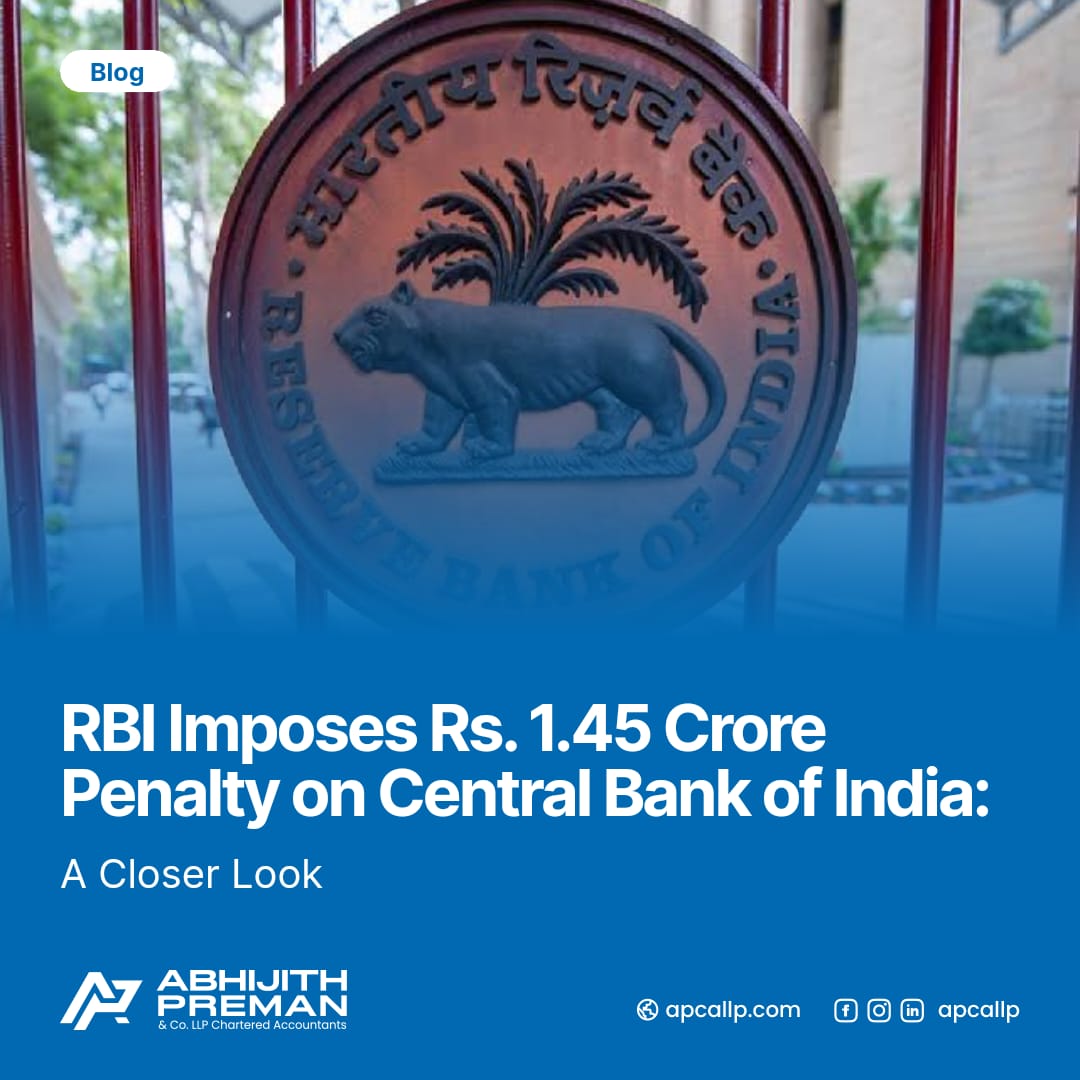
In recent news, the Reserve Bank of India (RBI) imposed a significant penalty of Rs. 1.45 crore on the Central Bank of India. This decision has sparked discussions across the financial sector, raising questions about the reasons behind this hefty fine and its implications for the bank and its customers.
The primary reason for this penalty lies in the bank's failure to adhere to certain regulatory guidelines set by the RBI. Specifically, the Central Bank of India was found non-compliant with the provisions related to 'Frauds - Classification and Reporting'. This non-compliance was identified during the bank's scrutiny, which revealed discrepancies in the timely reporting of fraud and ensuring adherence to proper risk management practices.
The RBI, as the central banking authority, plays a crucial role in maintaining the stability and integrity of the financial system in India. One of its key responsibilities is to ensure that all banks operating within the country follow strict guidelines to prevent financial malpractice. When a bank fails to comply with these regulations, it can undermine the trust and reliability of the financial system. Therefore, the RBI's action against the Central Bank of India is a step towards reinforcing the importance of regulatory compliance.
For the Central Bank of India, this penalty is not just a financial setback but also a reputational one. Banks are expected to maintain high standards of operational integrity, and any deviation from this can impact their credibility. The penalty reminds the bank and others in the industry about the critical importance of adhering to regulatory norms. It underscores the need for robust internal controls and vigilant risk management practices to safeguard against fraud and other financial irregularities.
For customers of the Central Bank of India, this development might raise concerns about the safety and security of their financial transactions. However, it is important to note that the RBI’s intervention and the subsequent penalty are meant to correct the bank's practices and ensure better compliance in the future. The ultimate goal is to protect the customers' interests and maintain a trustworthy banking environment.
In conclusion, the Rs. 1.45 crore penalty imposed by the RBI on the Central Bank of India serves as a critical reminder of the importance of regulatory compliance in the banking sector. It highlights the RBI’s role in ensuring financial stability and the need for banks to follow stringent guidelines to prevent fraud. While this penalty might temporarily impact the bank's reputation, it also allows the bank to improve its practices and regain the trust of its customers.
